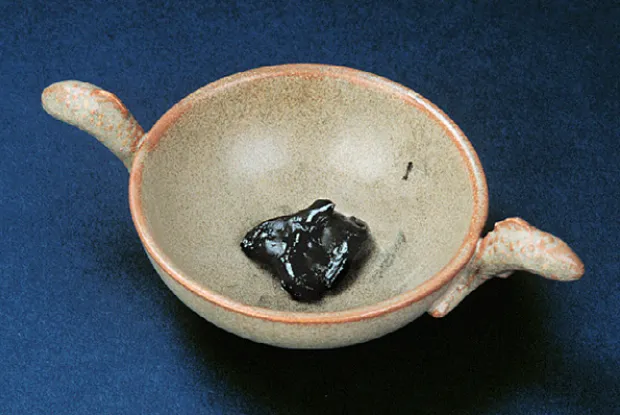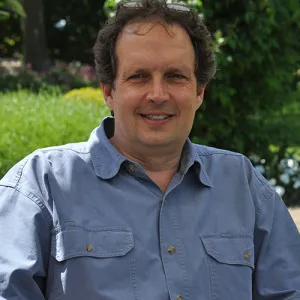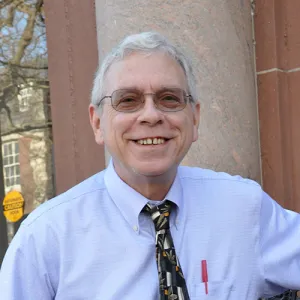
History of Science & Technology
The history of science and technology links many disciplines and cultures: scientific, technological, humanistic and social. Smith’s program in the history of science and technology is designed to serve all Smith students. Courses in the program examine science and technology in their cultural and social contexts, and the ways in which scientific inquiries, achievements and debates have shaped and continue to shape human culture (and vice versa). The history of science and technology minor complements majors in the humanities, social sciences and the natural sciences.
The Program in the History of Science and Technology at Smith aims to cultivate in students a critical, historical understanding of science and technology and their interactions with each other. Students minoring in the program study science and technology in their social, cultural and intellectual milieus. They do so in an interdisciplinary setting, with faculty and approaches drawn from all of the major divisions of the college.
The study of the history of science and technology offers many rewards. Careful analysis and criticism of texts and objects is useful for all students. Students learn how science and technology have been major forces in the development of human societies and cultures. In addition, they learn how the theoretical and experimental practices of the sciences have been influenced by societies and cultures. Among other functions, exposure to the history of science and technology allows students to see that these endeavors have looked and operated differently in times past, that this history influences their development, and that they are linked to each other and the larger culture in different ways throughout history.
Students come to understand how science and technology progress even though scientists change their minds dramatically, compete quite vigorously and defend ideas in the face of overwhelming counterevidence.
Requirements & Courses
History of Science and Technology Minor
Requirements
Six courses
- A basis course in the history of science and technology: a relevant FYS, ENG 207/ HSC 207 or a topic of PHI 211
- Two courses in the natural or mathematical sciences
- Three courses in the field of history of science and technology chosen in consultation with the student’s minor adviser. Normally one of the history of science and technology courses will be HSC 404, but another course may be substituted with the approval of the adviser.
Work at the Smithsonian Institution in the Picker Program counts as one course toward the minor.
Students considering a minor in the history of science and technology are urged to consult with their advisers as early as possible.
Courses
HSC 404 Special Studies (4 Credits)
Instructor permission required.
Fall, Spring, Annually
Crosslisted Courses
AMS 243/ SWG 243 Feminist & Indigenous Science Studies (4 Credits)
Offered as AMS 243 and SWG 243. This course considers such questions as: What does one know and how does one know it? What knowledges count as science? How is knowledge culturally situated? How has science been central to colonialism and capitalism, and what would it mean to decolonize science(s)? Is feminist science possible? The course looks at key sites and situations in media and popular culture; science writing; sociological accounts of science; creation stories; and traditional knowledges in which knowledge around the categories of race, gender, sex, sexuality, sovereignty and dis/ability are produced, contested and made meaningful. Enrollment limited to 35. Social Science; Historical Studies
Fall, Spring, Variable
ANT 135/ ARC 135 Introduction to Archaeology (4 Credits)
Offered as ANT 135 and ARC 135. This course studies past cultures and societies through their material remains and explores how archaeologists use different field methods, analytical techniques and theoretical approaches to investigate, reconstruct and learn from the past. Data from settlement surveys, site excavations and artifact analysis are used to address economic, social, political and ideological questions across time and space. This course is taught from an anthropological perspective, exploring key transitions in human prehistory, including the origins of food production, social inequality and state-level societies across the globe. Relevance of archaeological practice in modern political, economic and social contexts is explored. Restrictions: First-years and sophomores only. Enrollment limited to 30. Natural Science; Social Science
Fall
ANT 224/ ENV 224 Anthropos in the Anthropocene (4 Credits)
Offered as ANT 224 and ENV 224. Anthropology seeks to understand human life in all its complexity, but what constitutes the human is far from straightforward. This course examines the changing ways that Anthropos is being understood in an era of rapid global climate change and our planet’s sixth mass extinction event, both driven by human activities. We review perspectives on the relationship between humans and their environment from various cultural perspectives, considering how they engage notions of race, class, and gender, and what they imply for nature conservation. Topics include modernity, pets, cyborgs, kinship, symbiosis, extinction, species invasions, settler colonialism and the Anthropocene concept. Enrollment limited to 30. Social Science
Fall, Spring, Variable
ANT 229 Africa and the Environment (4 Credits)
In Western discourses, African environments are defined by violence, famine and degradation. These characteristics are depicted as symptoms of an African resistance to Western values such as private property, democracy and environmentalism. This course encourages students to think critically about such portrayals by learning about specific environments in Africa and how humans have interacted with them across time. The syllabus is anchored in cultural anthropology, but includes units on human evolution, the origins and spread of pastoralism, the history of colonial conservation science and more. Discussions covered include gender, race, land grabbing, indigenous knowledge, the commons, the cattle complex, desertification, oil, dams and nationalism. Natural Science; Social Science; Historical Studies
Fall, Spring, Variable
ANT 248 Medical Anthropology (4 Credits)
This course looks at the cultural construction of illness by examining systems of diagnosis, classification, and therapy in both non-Western and Western societies. Special attention is given to the role of the traditional healer, the anthropological contribution to international health care, and the training of physicians in the United States. Restrictions: Not open to first years. Enrollment limited to 30. Natural Science; Social Science
Fall, Spring, Alternate Years
ARH 289 Art and Medicine, Late 18th Century to the Present (4 Credits)
This course examines intersections of art and medicine from the late 18th century to the present. Considering a variety of texts and objects, from wax medical models and public health posters to Mona Hatoum’s cell-like sculptures and photographic coverage of the 2014 Ebola epidemic, the course disentangles how medical understandings of the body filter into artistic production and popular thought and vice versa. While course material is primarily from Europe and the United States, the course attends to the ways medical imaginings of the body engage with imperialism and geopolitical boundaries, as well as race, gender, ability, class and sexuality. (E) Arts; Historical Studies
Fall, Spring, Variable
ENG 207/ HSC 207 The Technology of Reading and Writing (4 Credits)
Offered as ENG 207 and HSC 207. An introductory exploration of the physical forms that knowledge and communication have taken in the West, from ancient oral cultures to modern print-literate culture. The main interest is in discovering how what is said and thought in a culture reflects its available kinds of literacy and media of communication. Discussions to include poetry and memory in oral cultures; the invention of writing; the invention of prose; literature and science in a manuscript culture; the coming of printing; changing concepts of publication, authorship, and originality; movements toward standardization in language; and the fundamentally transformative effects of electronic communication. Literature
Fall, Spring, Annually
FYS 185 Making Natural Knowledge: Collecting, Display, and Visuality in Science and Medicine (4 Credits)
What does collecting have to do with scientific innovation? Why have specimens and their display in museums, zoos, and botanical gardens been essential to the development of disciplines like natural history, botany, or biology? What role does visual representation play in making medical arguments? This course explores practices of collecting and display, as well as the central place of images, objects, and human, plant, and animal bodies, in scientific and medical knowledge production, and the larger social and ethical consequences of these practices, exploring key debates from fields like science and technology studies, the health humanities, visual and material culture studies, art history, and museum studies. Students engage Smith’s own histories of scientific and medical collecting in the Special Collections and the Lyman Plant House. Restrictions: First-years only; students are limited to one first-year seminar. Enrollment limited to 16. WI
Fall, Alternate Years
HST 227mm Colloquium: Topics in Medieval European History-Magic in the Middle Ages (4 Credits)
The course uses magic as a case study for exploring cultural transmission in the Middle Ages. The course examines Germanic and Greco-Roman occult traditions, and the way in which the medieval synthesis of these cultures effects understandings of the occult. The course follows the influence of the Arabic and Hebrew influences on western occultism of the High Middle Ages, and flowering of the Renaissance magical tradition. The course challenges and reshapes some of our basic understandings about Medieval society. It problematizes modern division between science, magic and religion to illustrate how occult beliefs were part of wider religious experiences. Enrollment limited to 18. Historical Studies
Fall, Spring, Variable
PHI 211ob Topics in Science and Society: Objectivity (4 Credits)
Beyond the vague idea that scientific, claims, methods and results should not be "influenced" by particular perspectives, the notion of objectivity in the sciences has proven difficult to characterize. How should scientific objectivity be defined? Is it desirable? To what extent can scientists achieve it? What are the consequences for society of different conceptions of scientific objectivity? This course explores these and other questions through examination of past and current scientific practice. Enrollment limited to 40. Social Science; Historical Studies; Mathematics
Fall, Alternate Years
PHI 211pn Topics in Science and Society-Pandemics (4 Credits)
How are pandemics represented? How do these representations implicate science, politics, and society? The prevalent "contagion" frame is a story about seeing the microbe as the enemy, erasing or downplaying human agency and practices (especially the expansion into new ecosystems), and affirming epidemiology and medical science as the only solution. The frame carries over into politics and culture and provides a way to translate the science of contagious disease into social terms that influence the public and also public policy. This frame and others are used to explore past and current pandemics. Enrollment limited to 40. Social Science; Historical Studies
Fall, Spring, Variable
PHI 211sr Topics in Science and Society-The Scientific Revolution (4 Credits)
What was the Scientific Revolution of the 16th and 17th centuries? Did a revolution even occur? If it did, was it really revolutionary? If it occurred, what forces produced it? How did the boundaries of “science,” which was known as “natural philosophy,” change during this time period? Readings are drawn from primary and secondary sources. Enrollment limited to 40. Natural Science; Historical Studies
Fall, Spring, Variable
PHI 224 Philosophy of Science (4 Credits)
Case studies in the history of science are used to examine philosophical issues as they arise in scientific practice. Topics include the relative importance of theories, models and experiments; realism; explanation; confirmation of theories and hypotheses; causes; and the role of values in science. Natural Science; Mathematics
Fall, Spring, Alternate Years
PHI 238 Environmental Philosophy (4 Credits)
This course prepares students to understand and critically evaluate various ethical perspectives on human beings’ interactions with nature and these perspectives’ applications to environmental issues. The principal ethical perspectives studied are anthropocentrism, biocentric individualism, environmental holism and environmental pragmatism. The class studies representative descriptions and defenses of these perspectives and examine in particular whether they can validly and effectively help us resolve environmental problems. Students study controversies about biodiversity, wilderness protection, global climate change and pollution. Enrollment limited to 40. Social Science; Historical Studies
Fall, Spring, Alternate Years
PHI 315sb Seminar: Topics in the Philosophy of Science-Sustainability (4 Credits)
An examination of the conceptual and moral underpinnings of sustainability. Questions to be discussed include: What exactly is sustainability? On what conceptions of the world (as resource, as machine, as something with functional integrity, etc.) does sustainability rely, and are these conceptions justifiable? How is sustainability related to future people? What values are affirmed by sustainability, and how can those values be endorsed? How does sustainability compare with environmental objectives of longer standing such as conservation? Preference given to majors in either philosophy or environmental science and policy. Restrictions: Juniors and seniors only. Enrollment limited to 12. Instructor permission required. Social Science; Historical Studies
Fall, Spring, Variable
Faculty
Resources
Virtual Museum of Ancient Inventions
The Virtual Museum of Ancient Inventions is a project that was begun by students in the course Ancient Inventions, which was offered at Smith from 1997 through 2004.

Contact History of Science & Technology
Dewey Hall 202
Smith College
Northampton, MA
Phone: 413-585-3425 Email: djett@smith.edu
Administrative Coordinator: Daryl Jett
Director: Jeffry Ramsey



